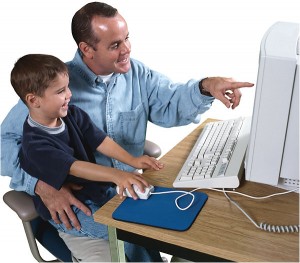Children with a lisp have trouble articulating the “z” and “s” sounds. While young children often have trouble pronouncing sounds, children over the age of eight can typically articulate the “s” sound. Children typically begin to learn the “z” sound at about four years of age, and they typically have a firm grasp on the sound by the time they are eight. If your child is over the age of eight and still displays a lisp, have him evaluated by a speech-language pathologist (SLP). It’s also a good idea to bring him to an SLP earlier if you think he may be displaying a language delay. The earlier a child with a lisp receives speech therapy, the more readily his articulation may be corrected.
How to File a Complaint
Individualized Education Program (IEP) Legal IssuesThere are many different situations that call for the filing of a complaint under the Individuals with Disabilities Education Act (IDEA). If you believe that your school district has failed to meet its IDEA obligations or has grossly violated your child’s rights, file an official complaint within a year of the violation.
Computer Programs for Speech Therapy
Speech Therapy TechniquesSpeech therapy apps are great for fitting in a quick lesson on the way to soccer practice. However, you can also turn your PC into an electronic speech therapy tutor for your child. Some computer programs for speech therapy are customized for a specific speech disorder, while others offer a comprehensive range of tools. Consult your child’s speech-language pathologist (SLP) and ask for recommendations of software programs that would best suit your child’s needs.
Advocating for Your Child
Individualized Education Program (IEP) Legal IssuesIt can be overwhelming when your child is diagnosed with a speech disorder. You’re probably facing mountains of insurance forms and Individualized Education Program (IEP) paperwork. In all likelihood, the last thing you have time for is a parent support group. However, support groups for parents of special needs children not only provide emotional help, they’re also a great networking opportunity. Networking is an important component of advocating successfully for your child. School districts may be more likely to heed the concerns of a group of parents. Plus, you can take advantage of the knowledge and experience of other parents with special needs children.
Semantic Pragmatic Language Disorder
Speech DisordersWhat Is It?
Semantic Pragmatic Language Disorder (SPLD) is a subject of much debate. Some experts associate it with autism spectrum disorder, while others label it as purely a language disorder. While the classification of the disorder and its root causes are not well understood, the symptoms certainly are. If your child has SPLD, he has difficulty with the use of language in a social setting. He also has difficulty understanding the meanings of words and phrases, particularly idioms and abstract concepts.





